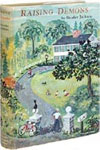Bando contra le Meretrice [published with:] Bando che niuno habitante in Roma, & Borghi possa andare all'hostaria, con la prohibitione delli giochi, barattarie, & altre cose illicite. [and:] Bando sopra l'esecuzione delle porte, ponti, passi, e piazze per tutti quelli che portano grascia a Roma, eccetto da quel tanto, che si paga per le dogane, e sopra lo sgombrar le piazze de essa alma Cittą
PROSTITUTION. COMMERCE. TRADE
From
Liber Antiquus Early Books & Manuscripts, Chevy Chase, MD, U.S.A.
Seller rating 4 out of 5 stars
![]()
AbeBooks Seller since 12 November 2009
About this Item
Description:
Disbound. Very fine condition. Extremely rare. No copies located outside of Italy. Three proclamations, the first two of which are aimed at prostitutes and other sex workers living and working in Rome, published in the first year of the reign of the reformer Pope Pius V, whose arms are printed on the first leaf. The first announcement (dated 4 September 1566) orders all prostitutes to leave Rome within fifteen days of this notice, and to leave the Papal States within twenty days after their departure from the city. Failure to do so will result in public flogging and forfeiture of all possessions. Although contemporary reports tell us that hundreds of prostitutes did leave the city because of the decree, Pius plan had limited effect, as "many of the banishment orders proved unenforceable, as prostitutes would not or could not leave the city."(Cohen) The wording of this document hints at these difficulties. It artfully states that this announcement (bando) has been printed for the benefit of all of those prostitutes who somehow did not hear the news of the official papal decree (monitorio), which had already gone into effect. "Collectively, the departures caused as much disruption as benefit. Respectable Romans, including landlords, shopkeepers, and customs officers, protested the feared loss of income. Instances of violence were attributed to the greed of those who helped themselves to prostitutes property. [Moreover], the sight of many women, including presumably many prostitutes, being energetically whipped was said by an avvisi writer to have aroused pity, fear, and horror among the Roman populace."(Cohen, p. 401) Prostitution in Taverns: The second proclamation (dated 2 October, 1566) printed here was intended to curb prostitution in and around taverns and inns (where many prostitutes lived) and to stamp out all manner of vice in those establishments more broadly. The decree prohibits any person, including prostitutes and other "donne disoneste" (such as procuresses) from frequenting taverns or inns. Among the banned activities are "gambling with dice or cards, blasphemy, thievery, gluttony" and other actions that "offend God, dishonor the people of this city, and cause scandal in the eyes of other nations." The penalty for each violation will be a fine of 25 gold scudi and three "tratti di corda" ("stretches of the rope"), that is, a torture method in which people s hands are tied together behind their backs and are hoisted up by their bound wrists. For prostitutes and "dishonest women" plying their trade, the penalty will be public flogging, imprisonment and other punishments yet to be determined. Tavern keepers and hoteliers who fail to put a stop to these prohibited activities will suffer the same punishments. The decree also says that no one should go to the taverns "to eat or drink" but presumably this should be seen in the context of prostitution, since prostitutes were often paid for their services with food and wine. "Prostitutes often resided above or next door to taverns; these establishments not only attracted potential customers for the women, but also supplied the drink and food they frequently shared with clients. Men bought meat and wine for prostitutes both for the pleasure of commensality and as part of the payment for the women's attentions."(Cohen, "Seen and known: prostitutes in the cityscape of late-sixteenth-century Rome", p. 407) Pius V and Counterreformation efforts to curb vice: "Moved by revulsion against sins of the flesh and by an acute shame at the contempt which they brought upon the holy city, zealous popes moves to purge Rome of moral decadence in general and its professional temptresses in particular. In the several strategies with which the reformers Pius V, Sixtus V, and Clement VIII, experimented between 1566 and 1605, efforts to control the presence of prostitutes in the city featured prominently. The unofficial news services, the avvisi , attribute to Pius V the most explicit rh. Seller Inventory # 5015
Bibliographic Details
Title: Bando contra le Meretrice [published with:] ...
Publisher: Antonio Blado, Rome
Publication Date: 1566
Binding: Hardcover
Condition: Fine
AbeBooks offers millions of new, used, rare and out-of-print books, as well as cheap textbooks from thousands of booksellers around the world. Shopping on AbeBooks is easy, safe and 100% secure - search for your book, purchase a copy via our secure checkout and the bookseller ships it straight to you.
Search thousands of booksellers selling millions of new & used books
New & Used Books
New and used copies of new releases, best sellers and award winners. Save money with our huge selection.
Rare & Out of Print Books
From scarce first editions to sought-after signatures, find an array of rare, valuable and highly collectible books.
![Bando contra le Meretrice [published with:] Bando che niuno habitante in Roma, & Borghi possa ...](https://pictures.abebooks.com/inventory/md/md31955656540.jpg)
![Bando contra le Meretrice [published with:] Bando che niuno habitante in Roma, & Borghi possa ...](https://pictures.abebooks.com/inventory/md/md31955656540_2.jpg)
![Bando contra le Meretrice [published with:] Bando che niuno habitante in Roma, & Borghi possa ...](https://pictures.abebooks.com/inventory/md/md31955656540_3.jpg)


